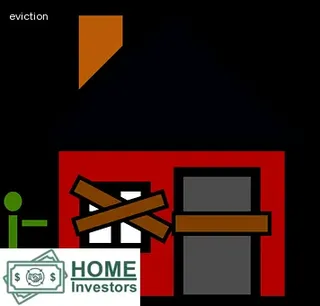Eviction laws in Tennessee are complex and require landlords and property managers to understand the process. It is essential for landlords or property managers to familiarize themselves with the relevant laws in order to protect their rights as well as those of the tenant.
The process involves filing a complaint in court, serving notice, attending a hearing, and making sure the tenant has vacated the premises. Generally speaking, from the time the complaint is filed until the tenant moves out can take anywhere from two weeks up to several months depending on how quickly proceedings move through the court system.
Additionally, there may be delays if tenants challenge an eviction or have legal representation. Landlords must also be aware of additional requirements such as filing an inventory of damages and getting a writ of possession signed by a judge.
It is important that they remain diligent throughout this process while abiding by all state regulations to ensure a successful eviction.

In Tennessee, there are a number of reasons why a landlord or property manager may choose to evict a tenant. These include nonpayment of rent, lease violations, causing damage to the rental unit, engaging in criminal activity on the premises, and failure to vacate after the termination of the lease.
Landlords and property managers may also pursue eviction if a tenant is using the rental unit for purposes other than those outlined in the lease agreement or has permitted unauthorized occupants to move into the rental unit. In addition, some landlords will evict tenants who have not maintained cleanliness in their dwelling or have made excessive noise that has disturbed their neighbors.
Lastly, depending on local laws and regulations, landlords can seek eviction if they need access to the rental unit for repairs or renovations and can no longer gain entry through normal means.
In Tennessee, the legal notice requirement for evicting a tenant is outlined in the Tennessee Residential Landlord Tenant Act. Before filing an eviction lawsuit against a tenant, the landlord or property manager must serve the tenant with a written notice which includes the reasons for the eviction and the amount of time given for them to vacate.
The notice must be served either personally or by certified mail and must include information such as the date of service, name of tenant(s), address of rental property, and details regarding how much time they have to move out. Depending on why they are being evicted, tenants may have anywhere from three days to fifteen days to respond or vacate their premises.
If no response is received during that time frame, then the landlord can file an eviction lawsuit with a court. It's important for landlords and property managers to understand the legal notices that need to be served before beginning an eviction process in order to ensure that all rights of both parties are respected.

In Tennessee, unpaid rent can have a huge impact on tenants. Eviction proceedings can be lengthy, the process of which could take up to several months from start to finish.
Landlords and property managers must abide by the laws in place when evicting tenants for nonpayment of rent. These laws are designed to protect tenants as much as possible, making sure that they receive proper notice throughout the process and have a chance to respond or contest any eviction.
If evicted, tenants may face significant financial repercussions including court costs and fees related to the eviction process. Additionally, they may struggle to find other housing due to their eviction record being on file with credit bureaus or tenant screening services.
As such, nonpayment of rent should be taken seriously - both by landlords and tenants - in order to minimize its detrimental effects on both parties involved.
In Tennessee, self-eviction is strictly prohibited by law. It is illegal for a landlord or property manager to take any action to evict a tenant without first obtaining an eviction order from the court.
This includes changing locks, shutting off utilities, or any other form of physical force to compel the tenant out of the premises. Any such attempts at self-eviction will result in legal consequences such as fines and/or jail time.
Additionally, if the tenant can prove that they have been wrongfully evicted, they may be awarded damages from the landlord or property manager for their suffering and/or financial losses due to displacement. The best way for a landlord or property manager to legally evict tenants in Tennessee is through a court-ordered process which typically takes about 30 days depending on local regulations and procedures.

In Tennessee, the process of evicting a tenant can take anywhere from a few days to several weeks depending on the type of tenancy. In the case of month-to-month tenancies, landlords and property managers must give at least thirty days’ notice if they wish to terminate a lease.
If the tenant has failed to pay rent, however, then only fifteen days’ notice is required. If a tenant does not vacate the premises after receiving this notice, then the landlord or property manager can file an unlawful detainer action in court.
This action typically takes another two weeks to complete before an eviction order is issued, and it may take several more weeks for sheriff's deputies to actually enforce the eviction order. Overall, it can take up to one month or longer for landlords and property managers in Tennessee to evict tenants from their leased properties in cases involving month-to-month tenancies.
In Tennessee, eviction proceedings begin with service of an appropriate notice to terminate a tenancy. Depending on the reason for eviction and the terms of the rental agreement, landlords must serve either a 30-day or 60-day notice.
If the tenant does not remedy the breach of agreement or vacate the premises by the end of the notice period, then landlords can file a dispossessory warrant in court. The tenant must be served with this warrant no less than 48 hours before the court hearing date.
After receiving service of process, tenants have 10 days to file an answer in court if they wish to contest the eviction. Once a judgment is rendered in favor of the landlord, they may obtain a writ of possession from the court clerk which will authorize them to take back possession of their property.

In Tennessee, when a landlord or property manager wishes to evict a tenant, the process typically begins with the filing of a detainer warrant. This warrant is issued by a court and serves as the legal document that initiates the eviction proceedings.
Once it is issued, the tenant must be served with the detainer warrant by either handing it directly to them or posting it on their door. After service of the detainer warrant, there will usually be a court hearing scheduled within 14 days in which both parties can present their evidence and arguments before a judge.
The judge will then decide how long it will take for the tenant to comply with their obligations under their lease agreement or vacate the premises if they fail to do so. Depending on the circumstances, this process could take anywhere from one week to several months.
When faced with an eviction claim in Tennessee, there are several potential defenses that a landlord or property manager can employ to protect their rights. The first line of defense is to make sure the tenant has violated the terms of the lease agreement.
In addition, it's important for landlords and property managers to stay up-to-date on all relevant state laws as they pertain to evictions and try to determine if any of them have been violated by the tenant. Landlords may also be able to use nonpayment of rent as a defense if they can prove that they have made reasonable attempts to collect.
Finally, if the tenant has been accused of violating a housing law or regulation, landlords must take steps to ensure that all repairs and upgrades have been properly completed before filing for an eviction.

In Tennessee, landlords and property managers must go through a lengthy process to evict a tenant. The first step is obtaining a judgment from the court, which requires filing an official complaint and serving the tenant with summons.
Once the court renders its decision, the landlord can then issue a Writ of Possession that orders the sheriff to execute the eviction. Property managers must also be aware that they are not allowed to change locks or shut off utilities during this time period.
Furthermore, when delivering the Writ of Possession, law enforcement must give the tenant 24 hours’ notice prior to removal from the premises. It is important for landlords and property managers to understand these rules in order to ensure compliance with state laws and protect their rights as property owners.
In Tennessee, landlords and property managers must follow certain steps to lawfully terminate a lease with cause. If a tenant has violated their rental agreement or failed to pay rent, the landlord must give written notice of the violation.
The amount of time given depends on the type of violation – if it is a month-to-month tenancy, three days are required; however if it is a long-term lease, thirty days notice may be necessary. After this period has passed, the landlord can then file an unlawful detainer complaint in court and serve it to the tenant.
The tenant will then have seven days to respond before the court can issue an eviction order. Following this, law enforcement can be contacted for assistance in executing the eviction.
It is important for landlords and property managers to ensure that all necessary steps are taken throughout this process in order to legally terminate a lease with cause in Tennessee.

In Tennessee, a landlord or property manager is legally allowed to terminate a lease without cause under certain circumstances. To do so, they must provide the tenant with written notice at least 30 days prior to the termination date of the lease.
This written notice must include the exact date that the tenant’s tenancy will end and must be signed by both parties. Additionally, landlords are required to provide tenants with an official form known as the “Rent Lease Termination Notice” which outlines their rights and responsibilities during the eviction process.
If the tenant fails to vacate on or before the termination date, then landlords are legally allowed to file an unlawful detainer lawsuit in order to begin proceedings against them. As such, it is important for landlords and property managers in Tennessee to understand what steps need to be taken in order to terminate a lease without cause as well as how long it typically takes for this process to be completed.
In Tennessee, landlords and property managers are typically allowed to proceed with an eviction after a tenant has violated the terms of their lease agreement. Depending on the circumstances, the eviction process can take anywhere from a few days up to a month or more.
The timeline for completing an eviction in the state of Tennessee typically begins when the landlord or property manager serves notice to the tenant. This is followed by a court hearing where both parties must appear before a judge to discuss the case.
If the judge rules in favor of the landlord, an eviction order will be issued and tenants must vacate within 48 hours. In some cases, it may take up to 7 days for tenants to be fully removed from the premises.
After that point, landlords must file an affidavit with the court affirming that all tenants have been removed from the property before they can proceed with any further legal action against them.

In Tennessee, there are certain prerequisites that landlords and property managers must meet before filing an eviction suit. This includes providing written notice to the tenant regarding their breach of the lease agreement, such as nonpayment of rent or other contractual violations.
The amount of time for the notice period will depend on the type of violation and may range from three to thirty days. Landlords or property managers must also file an affidavit with the court outlining their claims against the tenant and any information required by state law in order to proceed with an eviction suit.
Additionally, they must prepare all necessary documents for court submission and pay applicable filing fees. It is important to note that tenants have a right to challenge an eviction suit if they believe it was filed without cause, so it is essential that landlords or property managers adhere strictly to TN law when initiating this process.
In Tennessee, there are certain duties and obligations that landlords and property managers must adhere to in the course of an eviction suit. Depending on which county the property is located in, service of process must be done by either sheriff's office or private process server.
The landlord or their agent should also provide a copy of the summons to the tenant upon service of process. In addition, landlords need to be aware that they are not allowed to change locks on a tenant’s residence during an eviction suit, as this would be considered “self-help eviction” and would violate TN law.
Moreover, it is important that all documents related to the case are filed within the timeline set out by Tennessee statutes. Furthermore, both parties must appear at court hearings and comply with any orders issued by the court before a judgement can be made.
Lastly, if a judgement is made in favor of the landlord then a writ of possession will also need to be obtained from the court before any further action can take place.

It is important for landlords and property managers in Tennessee to understand the distinction between a Notice to Quit and an Unconditional Quit Notice when initiating the eviction process. The landlord has certain rights that must be adhered to during the course of an eviction suit, such as notifying tenants of their right to cure or pay rent, giving proper notice of hearings and filing an appropriate dispossessory warrant.
Tenants also have rights they must be aware of during the process, including responding within the time frame allotted, attending mandatory court hearings and knowing their rights when faced with a default judgment. Property owners should reference pertinent statutes such as TCA Ann.
§ 66-28-505 for residential evictions and TCA Ann. § 66-28-301 for commercial evictions when seeking legal help with a TN eviction case.
When choosing a law firm to assist with an eviction case in Tennessee, it is important to take into consideration factors such as experience in state court proceedings, success rate in previous cases and cost of services.
In Tennessee, the eviction process can take anywhere from a few days to several weeks, depending on the particular case. Tennessee landlords and property managers must follow state and local laws when evicting a tenant.
The first step in the eviction process is for the landlord or property manager to serve the tenant with an official notice of eviction. Once served, the tenant has 10 days to respond or vacate the premises.
If the tenant does not vacate within this time frame, the landlord may then file an eviction lawsuit in court. The length of time it takes for a court hearing will depend on the court's schedule, but typically ranges from one week to two months.
At the hearing, if a judge rules against the tenant, they have a five-day period to appeal or move out before they are forcibly removed by law enforcement officers. Therefore, while there is no set timeline on how long it takes to evict a tenant in Tennessee, landlords and property managers should plan for up to two months of processing time before regaining possession of their rental property.

In Tennessee, the amount of time a tenant has to move out after an eviction court date is determined by the type of eviction. For nonpayment of rent, the tenant will typically have 10 days to move out from the date of their eviction court order.
If there are other reasons for the eviction that require more immediate action, such as criminal activity or destruction of property, then the tenant may only be given 72 hours to vacate. Landlords and Property Managers should be aware that these regulations vary by county and city; it is important to consult with local law enforcement for any additional guidelines or timeline for evictions due to breach of lease terms.
It is also important to note that if a tenant does not leave within the given time frame, you may have to file an Unlawful Detainer in order to have them removed from the property.
While the eviction process in Tennessee can be long and arduous, there are a few ways to delay or even avoid it altogether. The best way to delay an eviction in Tennessee is to negotiate with your landlord or property manager.
Be sure to have the terms of any agreement written down and signed by both parties. Additionally, you may be able to request mediation through your local housing authority or court system.
If this is an option, it could help you reach an agreement that works for both sides while also providing a neutral third-party mediator who can help resolve any conflicts between the tenant and landlord. It’s important to note that mediation does not necessarily guarantee a successful outcome, but it can help delay the eviction process and possibly provide a better solution for all parties involved.
Furthermore, tenants should be aware of their rights during the eviction process as outlined in Tennessee law. This knowledge could be invaluable if you are in danger of being evicted from your home.
An eviction in Tennessee can stay on a tenant's record for up to seven years. Eviction proceedings must be filed in the local county court and typically take four to six weeks to complete.
Landlords and property managers should be aware of the length of time an eviction stays on their tenant's record, as it could affect their rental prospects in the future. For tenants, understanding how long an eviction can remain on their record is important for ensuring that they are treated fairly when looking for new housing or employment opportunities.
The best way to avoid an eviction from staying on your record for too long is to make sure that you are able to comply with all conditions of your lease agreement and pay your rent in a timely manner. If you do find yourself facing an eviction, it is important to understand the timeline of the process so that you know what to expect and how long it will stay on your record.
A Tennessee 10 Day Eviction Notice is a document served to tenants informing them that they have 10 days to vacate the premises and pay any outstanding balance. The notice must include the name of the landlord or property manager, the address of the rental property, and an explanation as to why eviction is being sought.
This document will also serve as proof of notification should the matter proceed to court. The Tenant must be given at least 10 days before any legal action can begin against them or their belongings.
It is important for landlords and property managers in Tennessee to understand that this process may take longer than 10 days depending on various factors such as how long it takes for all parties involved to respond and file necessary paperwork.
Eviction in Tennessee can be a lengthy process, depending on the situation. Landlords and property managers must receive a court order before they can evict a tenant, and this order must go through the court system for approval.
The length of time it takes to obtain the court order depends on how quickly the paperwork is processed by the court. After it has been approved, landlords and property managers must then serve the eviction notice to their tenants.
This typically involves posting a notice at the rental property or delivering it directly to the tenant. Once served, tenants may have up to 10 days to move out of the rental unit before legal action is taken against them.
If necessary, landlords and property managers may request an expedited hearing with a judge that could shorten the eviction process length; however, this is usually reserved for emergency situations such as when a tenant poses a threat of harm to other occupants or damage to property. In any case, it is important for both tenants and landlords/property managers to understand what their rights are throughout the eviction process in Tennessee so they can protect themselves accordingly.
A: The eviction process in Tennessee can take anywhere from a few weeks to several months depending on the circumstances. It is recommended that both the landlord and tenant seek legal counsel from an attorney to guide them through the process.
A: The length of an eviction process in Tennessee varies depending on the complexity of each case, but it typically takes between 2-6 months if a lawyer is involved.
A: The eviction process typically takes between two and three months in Tennessee when using property management software, email, and money to manage the rental property with an attorney.
A: The length of time for the eviction process varies depending on the county and situation. In general, it can take between 3 to 4 weeks if handled through the court system with an attorney.
A: The length of an eviction process in Tennessee can vary depending on the complexity of the case, however typically it takes approximately 8-12 weeks when using a LLC, money damages, and legal disclaimers with an attorney.
A: The length of the eviction process can vary greatly depending on the severity of the criminal activity. If the landlord has an attorney, the process could take anywhere from one to three months.
A: The eviction process in Tennessee can take anywhere from two to eight weeks depending on the complexity of the case. If a tenant contests the eviction, it may take longer with additional court hearings and delays. In most cases, however, an attorney can help expedite the process.
A: In Tennessee, an eviction process involving filing a complaint in Sessions Court can take anywhere from one to four months depending on the complexity of the case.
A: The length of time for the eviction process in Tennessee can vary significantly depending on the particular circumstances. Generally, it takes at least two weeks before the landlord can file a complaint in Circuit Court after providing proper notice to the tenant. Once the complaint is filed, it can take several weeks or months before a hearing is scheduled and a final judgement is rendered by the court. In addition, if either party decides to pursue an appeal through Knox County Appeals or other related courts, this could further extend the timeline of the eviction process.
A: An eviction process in Nashville, Tennessee can take anywhere from one to four months depending on the complexity of the case. This timeframe can be impacted by a variety of factors such as Moratoria, legal advice sought by both sides, and compliance with health and safety regulations related to heat.
A: The length of the eviction process in Davidson County, Tennessee will depend on the specific circumstances of each case. Generally speaking, the entire eviction process typically takes about one to two months from start to finish.
A: The eviction process can take anywhere from one to six months depending on the situation. If a landlord follows Tennessee Eviction Laws, Property Manager Responsibilities, and Eviction Notice Requirements, the eviction could be resolved quickly. However, if a tenant challenges the eviction in court or if there is an appeal, it can take longer for the process to be completed.
A: The length of the eviction process varies in Tennessee, depending on the specific situation. Generally, it takes a minimum of two to three weeks for the court proceedings to reach a conclusion. However, if there is an appeal or delay in proceedings, it could take up to several months before the eviction is finalized.
A: The eviction process can vary depending on the situation, but generally it takes approximately one to two months from the time of the notice of eviction to the time of the court hearing. This assumes all paperwork is properly filed, served and returned timely. The tenant also has certain rights under Tennessee law that may extend this timeline.
A: The eviction process can take up to several months depending on the complexities of the case and the ability of both parties to cooperate. Generally speaking, after a landlord serves a tenant with notice of termination of tenancy, it may take up to 30 days or longer for the tenant to find new housing or comply with the terms of their lease. If they do not comply within that time frame, then the landlord must file an eviction complaint in court which typically takes an additional 1-2 weeks before a court date is set.